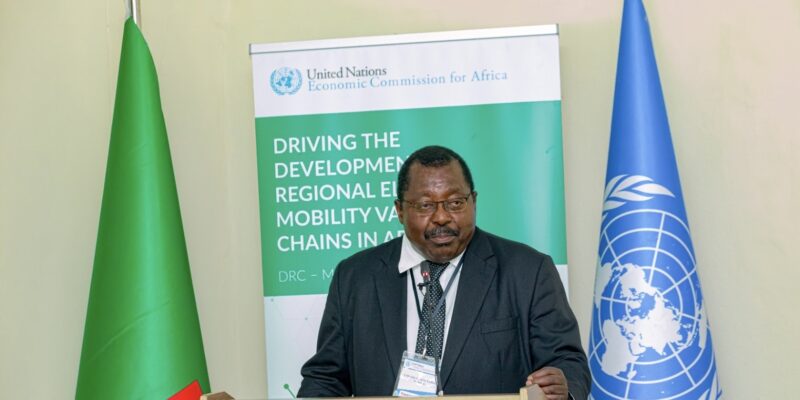The Zambian government has removed all taxes, except Value Added Tax (VAT), on Electric Vehicles (EVs) to encourage their adoption, with VAT also waived for locally manufactured EVs.
This policy shift aims to foster a green economy and promote sustainable industrialization.
Commerce, Trade, and Industry Minister, Chipoka Mulenga, represented by Permanent Secretary Crusivia Hichikumba, announced the measures, emphasizing collaboration with civil society groups like the Zambian Electric Mobility Innovation Alliance (ZEMIA) and the private sector.
Read more: Partnership to create a thriving Electric Vehicle ecosystem in Zambia formed
The minister said this during the a High-Level Policy Dialogue on Automotive and E-Mobility Regional Value Chains, held at Intercontinental Hotel, Lusaka to discuss the future of the sector in Southern Africa and beyond.
The government also pledged to ensure that at least 50 percent of its fleet comprises electric vehicles.
“We are eager to collaborate with other nations, including Botswana, DRC, Malawi, Morocco, Namibia, Lesotho, Zimbabwe, and others, to actualise Africa’s potential as a powerhouse for value addition through e-mobility solutions,” Mulenga stated.
He highlighted Zambia’s rich endowment of critical minerals—copper, lithium, cobalt, manganese, and nickel—essential for EV battery production.
Zambia’s ongoing partnership with the DRC to establish an EV battery plant is a key initiative within its broader critical minerals strategy.
During a High-Level Policy Dialogue on Automotive and E-Mobility Regional Value Chains,
UNECA’s Subregional Office for Southern Africa Director, Eunice Kamwendo, represented by Chief of Inclusive Industrialization, Olayinka Bandele, emphasized the alignment of Africa’s industrialization agenda with the global energy transition.
Kamwendo lauded UNECA’s initiatives, including regional EV value chains between the DRC, Morocco, and Zambia, and a special economic zone for BEVs in partnership with African Export-Import Bank (Afrieximbank).
“These initiatives aim to position Africa as a key player in the global automotive and electric battery industry,” Kamwendo noted, adding that collaborative efforts under AfCFTA could significantly boost intra-African trade in automotive components.
UNECA Director Adam Elhiraika echoed these sentiments, underscoring the need for policy harmonization, regional financing, and innovation to enhance Africa’s competitiveness in the global e-mobility sector.
WARNING! All rights reserved. This material, and other digital content on this website, may not be reproduced, published, broadcast, rewritten or redistributed in whole or in part without prior express permission from ZAMBIA MONITOR.













Comments